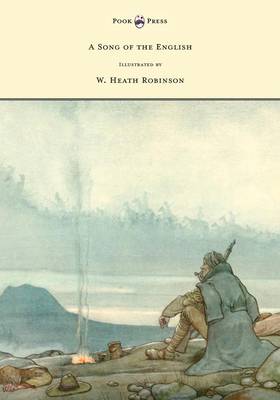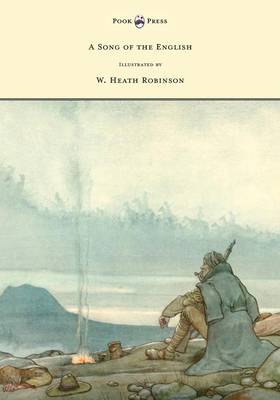
- Afhalen na 1 uur in een winkel met voorraad
- Gratis thuislevering in België vanaf € 30
- Ruim aanbod met 7 miljoen producten
- Afhalen na 1 uur in een winkel met voorraad
- Gratis thuislevering in België vanaf € 30
- Ruim aanbod met 7 miljoen producten
Zoeken
€ 36,45
+ 72 punten
Uitvoering
Omschrijving
This edition of Kipling's ""The Song of the English"" was originally published in November 1909. It included the six subsidiary poems: The Coastwise Lights, The Song of the Dead, The Deep-Sea Cables, The Song of the Sons, The Song of the Cities, and England's Answer. The theme underlying much of this collection, is that the English are the Chosen under the Lord, so long as they obey the Law. This is one of Kipling's earliest verses specifically setting out his vision of the British Empire, and the duties which it imposes on the English (British) people. His definition of 'the English' is wide, certainly embracing the people of the overseas Empire, Australia, New Xealand, Canada, South Africa, but arguably also the Americans. These classic poems are accompanied by thirty incredible colour illustrations and many beautiful and intricate black and white drawings by W. Heath Robinson. An English cartoonist and illustrator, best known for drawings of ridiculously complicated machines - for achieving deceptively simple objectives. Such was (and is) his fame, that the term 'Heath Robinson' entered the English language during the First World War, as a description of any unnecessarily complex and implausible contrivance.
Specificaties
Betrokkenen
- Auteur(s):
- Illustrator(s):
- Uitgeverij:
Inhoud
- Aantal bladzijden:
- 172
- Taal:
- Engels
Eigenschappen
- Productcode (EAN):
- 9781528770385
- Verschijningsdatum:
- 18/05/2022
- Uitvoering:
- Hardcover
- Formaat:
- Genaaid
- Afmetingen:
- 178 mm x 254 mm
- Gewicht:
- 625 g

Alleen bij Standaard Boekhandel
+ 72 punten op je klantenkaart van Standaard Boekhandel
Beoordelingen
We publiceren alleen reviews die voldoen aan de voorwaarden voor reviews. Bekijk onze voorwaarden voor reviews.







